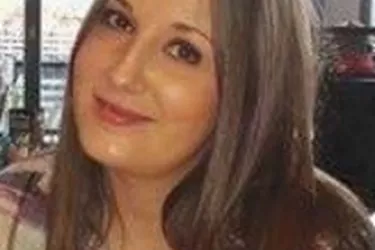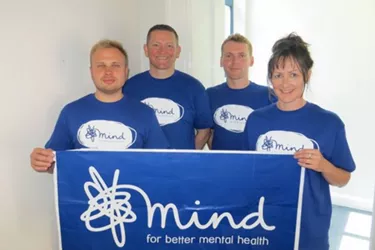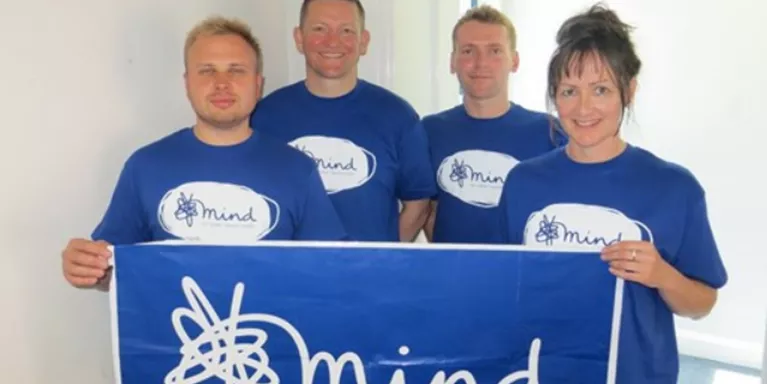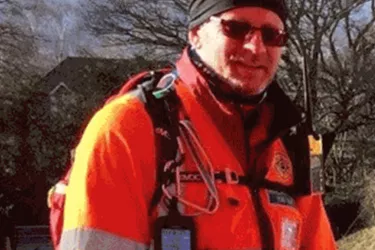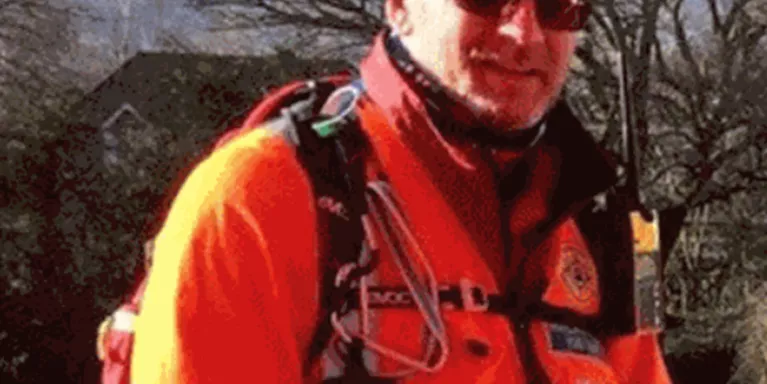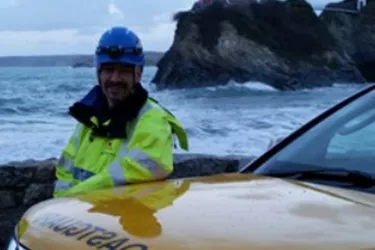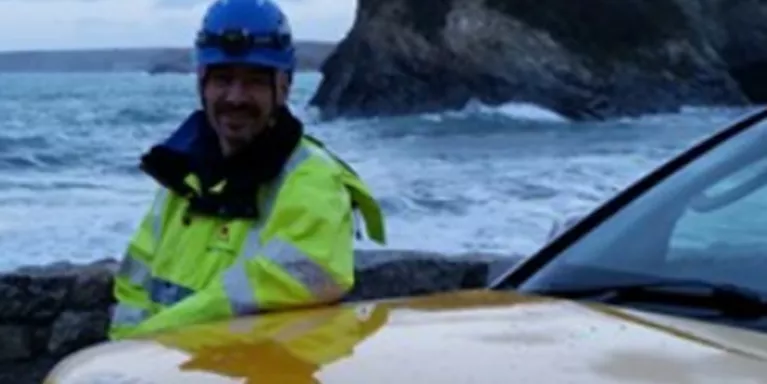Talking about mental health in the police
Scott works for the police. He wanted to get his team talking more about mental health. The results surprised him.
I’ve been a police officer for the last nine years. Having been in a position where I had felt alone, I didn’t want anyone else to feel like that, or to not have anyone else to talk to - or not think it was OK to talk to someone about their wellbeing. I had noticed a few people walking around at work who didn’t seem themselves; I took an interest, made sure everything was all right, and let them know it was OK to talk. I got more interested from there.
A Blue Light Champion volunteers to raise awareness of mental health problems and where to seek support within the emergency services. The role is part of Mind's Blue Light Programme, which supports 999 teams with their mental health. I attended some Blue Light Champion seminars and things started to blossom.
"I had felt alone, I didn't want anyone else to feel like that."
After the Blue Light Champions course I attended a session at my local Mind on mental health for line managers. It was such a nice relaxing environment in which we could talk more openly about things. I signed up to be a Champion after that. At first I thought it was just me on the borough, but as I started to talk to other people it turned out there were four of us. We had never met up - I thought I was the first, and so did they.
I then attended a workshop on the role of a Blue Light Champion, speaking up about mental health and speaking out about personal mental health experiences at Mind, and found it so insightful. It made me feel this is a good thing, that you can talk about mental health and challenge the stigma quite easily. I went back and spoke to the other Champions about it and we decided to deliver a similar package. It was a mixture of feelings for me: excitement at going out and doing it, but nervousness too, because of the stigma, and not knowing how people would react.
"You can talk about mental health and challenge the stigma."
I sent out an email to my colleagues asking: are you a Blue Light Champion or do you want to be? I thought one or two people might reply, but within an hour or two I already had four or five people saying they wanted to come along. That took me by surprise, and it was massively encouraging.
I said there were 12 spaces available, because I wanted to keep it small as I’d never done this before. But people kept asking and I kept saying yes. By the end of the first week, 16 people had signed up. That really encouraged me but it was also a bit daunting: I was going to have to deliver this package in the same enthusiastic way it was delivered to me. That made me a bit nervous, but I was also looking forward to it.
"To have 18 enthusiastic people show up from across the force encouraged me that this was the right thing to do."
The day before the session was my day off. I was at home with my wife going through my slides. The nerves were showing even then. On the actual day I turned up a couple of hours early to set up. I met my colleague Dan who was going to help out, went into the room and the computer wasn’t working. I thought this was a sign of how the day was going to go, but we sorted the computers out, set everything up, and it all worked fantastically.
I loaded up the presentation, set up the flip chart board, and spoke with Dan. I would deliver the training and he would be there to support me and the group’s wellbeing. He was also ready to give his reasons why he became a Blue Light Champion and he was open about his issues. I wasn’t ready to stand up in front of everyone and talk about it.
People started turning up, and that's when I got a bit nervous. But to have 18 enthusiastic people show up from across the force - from police staff and community support officers right up to inspectors - gave me a lot of encouragement that this was the right thing to do. That confidence overrode my nervousness. It made my day knowing that so many people wanted to do this.
"When someone spoke, everyone listened. I wondered why we hadn’t done this before, and I couldn’t wait to do it again."
When I started delivering the presentation, it opened up so many discussions within the group that we were soon running behind schedule. People started to open up about their own issues without perhaps realising. You could see it gave them a boost too, that it felt okay to talk about it. We set some ground rules - what we talk about in this room stays in this room; take away the learning but leave the people. That opened up so many people: they were asking questions, giving their stories and encouragement to others. And when someone spoke, everyone listened. I wondered why we hadn’t done this before, and I couldn’t wait to do it again.
We went from four Blue Light Champions on the borough to thirteen within a day or two of having that session. That was an amazing feeling.
(Image: Metropolitan Police)
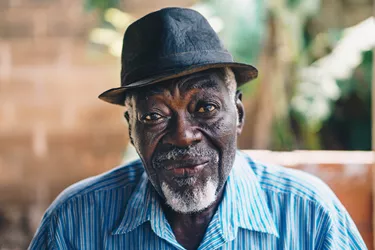

Information and support
When you’re living with a mental health problem, or supporting someone who is, having access to the right information - about a condition, treatment options, or practical issues - is vital. Visit our information pages to find out more.
Share your story with others
Blogs and stories can show that people with mental health problems are cared about, understood and listened to. We can use it to challenge the status quo and change attitudes.










